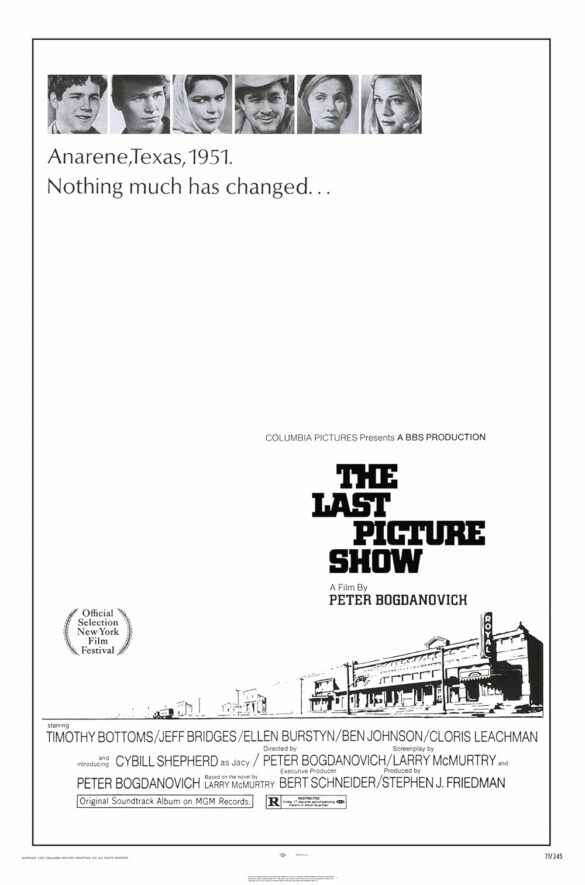The Last Picture Show (1971)
Type: Movie
Country: United States
Genre: Coming-of-Age Drama
Release Date: October 22, 1971
Duration: 118 minutes
Director: Peter Bogdanovich
Production Companies: BBS Productions, Columbia Pictures
Cast: Timothy Bottoms, Jeff Bridges, Cybill Shepherd, Ben Johnson, Cloris Leachman, Ellen Burstyn
Plot Summary:
“The Last Picture Show” is a poignant coming-of-age drama set in the early 1950s in the small, declining town of Anarene, Texas. The film follows the lives of two high school seniors, Sonny Crawford (Timothy Bottoms) and Duane Jackson (Jeff Bridges), as they navigate the complexities of adolescence and the transition to adulthood. The town’s only movie theater, owned by the wise and kind-hearted Sam the Lion (Ben Johnson), serves as a central gathering place for the community. As the boys grapple with love, loss, and the harsh realities of life, the closure of the movie theater symbolizes the end of an era and the loss of innocence. The film also explores the lives of other townspeople, including the beautiful and wealthy Jacy Farrow (Cybill Shepherd), her disillusioned mother Lois (Ellen Burstyn), and the lonely housewife Ruth Popper (Cloris Leachman).
Why It Endures:
“The Last Picture Show” endures as a classic for its raw and honest portrayal of small-town life and the universal themes of growing up and facing change. The film’s black-and-white cinematography by Robert Surtees adds a timeless quality, enhancing the nostalgic and melancholic atmosphere. Peter Bogdanovich’s direction, combined with Larry McMurtry’s screenplay, captures the essence of the 1950s with authenticity and depth. The performances by the ensemble cast are exceptional, with Ben Johnson and Cloris Leachman winning Academy Awards for their supporting roles. The film’s exploration of social and sexual mores, combined with its rich character development, makes it a compelling and enduring piece of cinema.
In Conclusion:
“The Last Picture Show” is a masterful film that resonates with audiences through its exploration of universal themes and its vivid depiction of a bygone era. Its blend of poignant storytelling, strong performances, and evocative cinematography ensures its place as a significant work in American cinema. Whether you’re revisiting it or watching it for the first time, “The Last Picture Show” offers a deeply moving and reflective experience that remains relevant and impactful.


